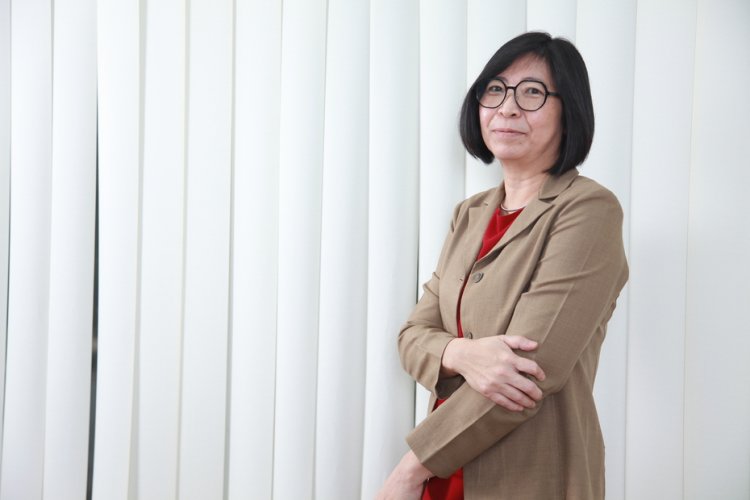AAT (Association of Accounting Technicians), the UK’s leading professional body for Accounting Technicians, has announced their latest courses to those who are looking towards professional development in their career paths. Through AAT courses, people from many walks of life – including school leavers, working adults and anyone wishing to change their career – can achieve their goals more quickly and efficiently. AAT’s goal is to help make a profession in finance more accessible and feasible by offering work-based accounting and practical skills to people of all ages.
These courses come at a time when more companies implemented cost-effective recruitment strategies which led to a rise in unemployment during the pandemic. In 2020, the unemployment rate was 4.5%, the highest in almost three decades. Malaysia’s economy also contracted 5.6%, a situation not seen since 1998 during the Asian financial crisis.
However, with more sectors of the economy opening up which can be seen in the third quarter of 2021 onwards, there seems to be a deficiency of prominent accounting skills needed by current employers with the developing and emerging markets, according to the International Federation of Accountants (IFAC). This creates a favourable demand for Accounting Technicians.
Accountancy is Malaysia’s fourth most in-demand profession
Accounting positions encountered the same challenges as other professions early in the pandemic, with hiring freezes across the board for several quarters. Now, accountancy skills are back in demand. According to the Institute of Labour Market Information and Analysis, accountancy is currently the fourth most in-demand profession in Malaysia.
Advanced accounting skills are among the most in-demand capabilities in today’s competitive job market, despite the pandemic. According to a professional recruitment consultancy, to attain a position such as an accounting leader, graduates need a good mix of business and accounting abilities. AAT allows accountants and finance professionals to hone necessary skills and safeguard their careers with the backing of a world-renowned designation and a network of industry experts.
With the aid of the Malaysian government, the Malaysian Institute of Accountants (MIA) aims to achieve 60,000 chartered accountants by 2030 by offering an incentivized pathway for qualified MIA members to achieve the ACCA qualification. However, with slightly over 36,000 members enrolled with the MIA in 2019, AAT is taking further efforts to assist the MIA in achieving its goal by 2030. When AAT was in Malaysia in the early 1990s, there was a sizable student and alumni body. Since returning to Malaysia, the numbers have gradually increased. It began with a small group of six students and has grown to about 500 registered students.
The goal of our government to achieve a gig economy is another incentive for more organizations to employ skilled Accounting Technicians who provide services such as bookkeeping and analysis of accounts, as well as offering relevant and up-to-date advice to support their clients. A trained accountant requires the expertise of at least seven support technicians, highlighting the demand for these Accounting Technicians. Furthermore, Small and Medium-Enterprises (SMEs) and micro-enterprises reported outsourcing or sharing accounting services, which is growing more widespread. According to the Department of Statistics, Malaysia (DOSM), the total number of SMEs in Malaysia in 2020 was 1,151,339, accounting for 97.2 percent of total business establishments. SMEs usually have a limited budget for chartered accountants and only require basic financial management accounting, which can be undertaken by trained and qualified Accounting Technicians efficiently without the need or cost of hiring a chartered accountant.
“With these qualifications, we want to bring more Accounting Technicians to the Malaysian market in an effort to achieve practical skills for today’s workforce that are in line with the rising interest. We hope to assist as many people as possible, whether they are just starting out, considering a career change, or are well established” said Mei Yoke Pak, the representative for AAT in Malaysia.
“Since completing my course with AAT, I have been working in the accounts and administration team of a company that develops software and web applications for management systems that are used by government bodies and private companies in the property industry. I get to partake in one of the most important meetings every month, presenting and discussing the company’s financial performance alongside executive committee members, and open discussions are welcomed at any time to bring solutions to issues facing the employees”– said Johan Danial, one of their students.
How AAT develops their learning strategies to keep abreast of industry demand
Working people and school graduates who wish to gain accountancy and bookkeeping abilities might pursue AAT certifications, which are internationally recognised. AAT offers courses such as the Level 2 Qualification, the Level 3 and Level 4 Bookkeeping Qualification.
The Level 2 Qualification provides the skills and knowledge necessary to efficiently manage books, including manual double-entry bookkeeping and associated documents and processes, up to trial balance standard. Even during the country’s lockdowns, AAT Level 2 students were able to find work, showing how valuable the qualification is to employers.
AAT’s Level 3 Bookkeeping Qualification provides a pathway for individuals with basic knowledge of bookkeeping to acquire a bookkeeping position or to further their education. This course covers double-entry bookkeeping, financial statements, intermediate spreadsheets and software use. Students can also combine the AAT Level 3 Advanced Certificate in Bookkeeping and the AAT Level 3 Advanced Diploma in Accounting.
The final stage in achieving a complete AAT Accounting Technician Qualification is Level 4 Bookkeeping, which explores analytical techniques for planning, such as fraud management and internal controls.
All AAT assessments are computer-based, providing for scheduling flexibility and remote learning. The course duration is between two and 12 months, depending on whether students study part-time or full-time. AAT currently has 7 Training Providers in Malaysia and plans to expand to the majority of the country next year, with a mixture of in-person classes and remote virtual education.
AAT is running its first-ever online student conference – accelerAATe Online 2022 – from 26 to 28 January 2022. The conference is free to attend for all AAT students and offers a range of sessions that students can watch on-demand after registration, making them accessible to students in Malaysia and around the world. For more information and to register for the conference, please visit the AAT website here.
For a better understanding of how AAT has helped Malaysians or to find out more about the qualifications mentioned above, get in touch with us here.
















